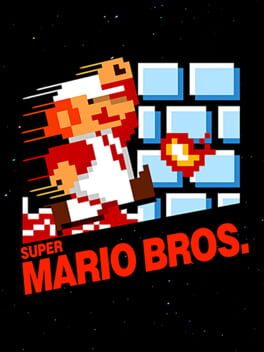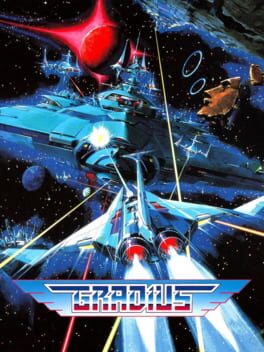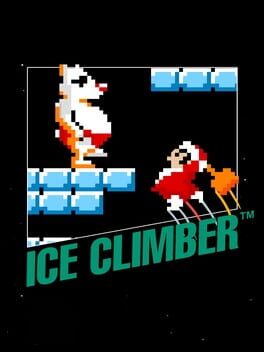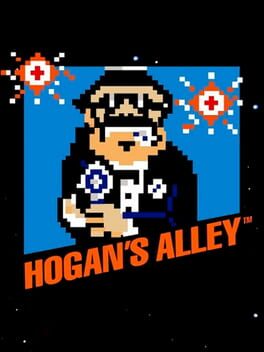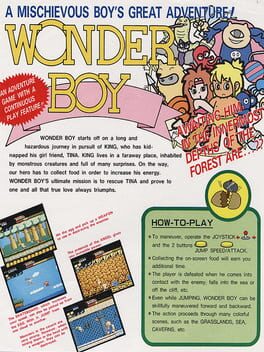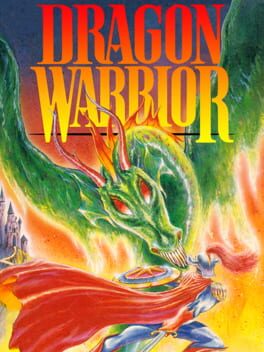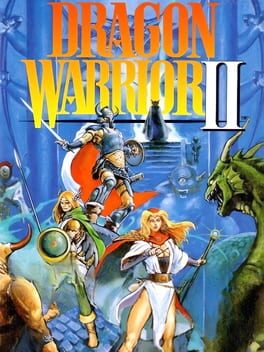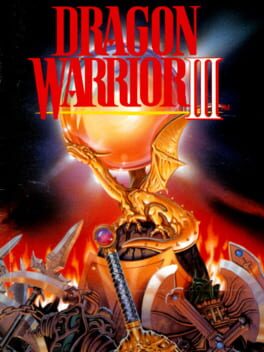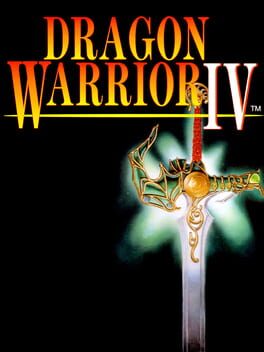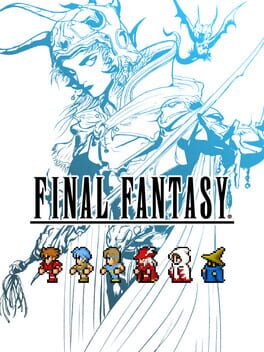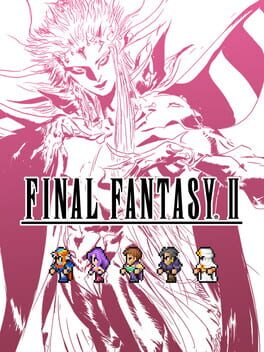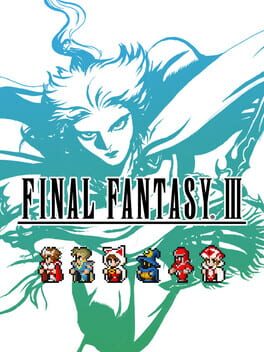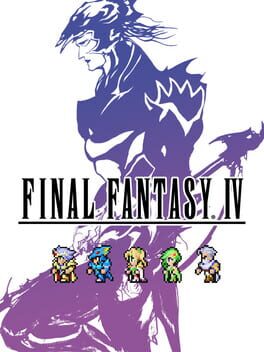TheMaxine
2023
Fun remake, albeit not necessarily a replacement to the original. The way it remixes the original game's elements kinda make it its own thing. Exploration may feel a bit overwhelming at times due to the sheer amount of detail and clutter that each area contains. Explains why they needed to mark stuff with yellow paint. Combat and upgrading stuff is still very satisfying, and as much as I prefer the original, I'd still come back to this every now and then.
1985
It's incredible just how well this game holds up, even 37 years later. Tight, weighty controls and fast-paced level design. Short, sweet, and fun. The lack of air control makes for some stressful gameplay, but I feel that's part of its design. Extra lives are also quite stingy unless you know the game really well, but there's warp pipes to make up for that.
1986
When you're able to upgrade your ship and start blasting lasers, there's a very satisfying "power play" kind of feeling this game gives you. However, it's soul-crushing to get hit once and lose all your upgrades. It's quite punishing, which will be a love or hate it thing for some. I was only able to beat it using rewind, and for what it's worth, I had an enjoyable time doing so. For an early NES game, it's not all that bad.
1985
1984
It's okay, as far as 1984 lightgun standards go. You may not get much out of it nowadays though, other than satisfying your historial curiosity. One funny thing that kept happening is me constantly accidentally shooting the cops, because with their grin and the way they hold the baton, I kept mistaking them for the bad guys. Maybe that says more about me than the game's design, but it kept happening!
1986
If Super Mario Bros didn't come out just a few months ago prior, showing everyone how you do 2D level design, I probably would've respected this game a little more. But, we don't live in that reality. Wonder Boy feels woefully outdated and basic in comparison. Controls feel slippery, the jump doesn't feel quite right, every level is a linear flat road with little to no complexity... unless you're feeling nostalgic for some Wonder Boy, there's just little reason to go back to this one.
1986
The first Zelda has some quite obtuse and weirdly-translated moments, but here's a tip: Pick up the manual. It's available online. The moment you do that, you realize the game was very much meant to be played with the manual in mind, providing much context, along with starting tips and hints to get you on the right path.
Other than that, it's quite good. You're not gonna get smooth movement on par with more recent Zelda games, but much like Castlevania, your limited controls are a deliberate way to make the combat more strategic. Dungeon-exploring is a good time, albeit the music can drive you nuts after a while. I put up a music playlist about halfway through the game to ease things up.
Overall, a respectable first entry to the series, as long as you don't mind its simplicity.
Other than that, it's quite good. You're not gonna get smooth movement on par with more recent Zelda games, but much like Castlevania, your limited controls are a deliberate way to make the combat more strategic. Dungeon-exploring is a good time, albeit the music can drive you nuts after a while. I put up a music playlist about halfway through the game to ease things up.
Overall, a respectable first entry to the series, as long as you don't mind its simplicity.
1986
Used a hack that doubles EXP and Gold gain. I also utilized an online map to help guide me, and save states to ensure I wasn't losing too much progress.
Even so, the first Dragon Quest feels like a more luck-based RPG than any I've ever played. You're all alone, with no party members to speak of, so dying is a death sentence with no backup plans. Through persistence, you will eventually make it through, it's just... not a particularly deep gameplay system with just one playable character to speak of.
The decision to make every dungeon require a light source was also a questionable one. It's a neat gimmick for one dungeon, but for all of them, it gets pretty tiring. There's also the matter of what you name your character influences your starting stats, which led to a pretty miserable playthrough my first time.
It's a rough entry, but an admirable starting point. The later games will go on to be more fleshed out and fun, though it might take a little while for them to get there. I would personally recommend Dragon Quest 4 as your starting point, but, if you're patient, seeing how the series evolves might be an interesting challenge too, as long as you bring some outside help in.
Even so, the first Dragon Quest feels like a more luck-based RPG than any I've ever played. You're all alone, with no party members to speak of, so dying is a death sentence with no backup plans. Through persistence, you will eventually make it through, it's just... not a particularly deep gameplay system with just one playable character to speak of.
The decision to make every dungeon require a light source was also a questionable one. It's a neat gimmick for one dungeon, but for all of them, it gets pretty tiring. There's also the matter of what you name your character influences your starting stats, which led to a pretty miserable playthrough my first time.
It's a rough entry, but an admirable starting point. The later games will go on to be more fleshed out and fun, though it might take a little while for them to get there. I would personally recommend Dragon Quest 4 as your starting point, but, if you're patient, seeing how the series evolves might be an interesting challenge too, as long as you bring some outside help in.
1987
Starts off very promising, expanding on the original by providing a total of three playable characters, dungeons that don't require torches like the previous games, and a grander, more explorable world that opens up after the first couple hours and allows you to go wherever you want. There's even a cool little moment as you explore the world map that I won't spoil. The difficulty spike that proceeds afterwards however, is a really rough one. Enemies begin wielding instant-kill attacks and spells, which you can't do anything against other than pray to god you're lucky enough to avoid them. Running away from battles and RNG manipulation became a must for me, I wouldn't imagine getting through some of those dungeons any other way. The difficulty as a whole ruins what could've otherwise been a safe adventure, but pleasant improvement to the first game.
1988
The third Dragon Quest is one that I'd be - for the most part - likely to recommend. The sense of adventure in this one far surpasses what Dragon Quest 2 had, and feels incredibly special. It eases you in through a linear start, before opening up the biggest world yet available to you, modeled after Earth itself. Utilizing an online map, you can see all the possibilities, all the different locales you can visit, and you can do it in any order you please. Ticking off each area, solving the problems within it, and getting closer to obtaining the 7 major McGuffins that unlock the final area. it's an incredibly satisfying gameplay loop.
The gameplay has also seen improvements in complexity. Upgrading from the three playable characters of Dragon Quest 2, you can now wield a total of 4. On top of that, they're no longer predetermined classes. Instead, you choose which classes you want. This leads to a considerable amount of customizability that lends itself to replay value. There is, of course, the classic setup that you're most likely to go with (warrior, white mage, black mage, tank...) but you're free to select multiple classes of the same type, or other odd combinations in order to challenge yourself. And, best of all, if you don't like what you get, you can change it by going back to the tavern until you land on something you like.
I'd like to say that this is the best Dragon Quest so far (and it is!), but... the reason why I said I could mostly recommend this one, is because as you approach the end of the game, it runs into a similar problem to Dragon Quest 2 - the difficulty spike. Once again, enemies obtain spells that are liable to instantly screw you over through the roll of the dice.
The one that instantly kills you is not too horriffic if you've got the means to just revive them back to life, but then there's the one that completely removes a character from your party. Just, poof, they're gone, can't revive them because they're not there anymore. They're all the way back in the tavern, of which there is only one, so, you can either try to push through the dungeon without them, or, leave and backtrack all the way there, numbnuts. I just... don't like that. It's such a massive inconvenience, and one that I don't feel like I can do anything about.
Still, if you're willing to push through some of the more shitty enemies this game has to offer, and as long as you're using a map (and maybe a wiki so you can see what items do), I can definitely see why people like DQ3 so much. It's a very relaxing RPG, that scratches that "number go up" itch well. Its world is expansive, but not meaningless. Play it for the adventure, but, if you're still hesitant about jumping into an NES RPG, then wait for the HD remake that's coming up.
The gameplay has also seen improvements in complexity. Upgrading from the three playable characters of Dragon Quest 2, you can now wield a total of 4. On top of that, they're no longer predetermined classes. Instead, you choose which classes you want. This leads to a considerable amount of customizability that lends itself to replay value. There is, of course, the classic setup that you're most likely to go with (warrior, white mage, black mage, tank...) but you're free to select multiple classes of the same type, or other odd combinations in order to challenge yourself. And, best of all, if you don't like what you get, you can change it by going back to the tavern until you land on something you like.
I'd like to say that this is the best Dragon Quest so far (and it is!), but... the reason why I said I could mostly recommend this one, is because as you approach the end of the game, it runs into a similar problem to Dragon Quest 2 - the difficulty spike. Once again, enemies obtain spells that are liable to instantly screw you over through the roll of the dice.
The one that instantly kills you is not too horriffic if you've got the means to just revive them back to life, but then there's the one that completely removes a character from your party. Just, poof, they're gone, can't revive them because they're not there anymore. They're all the way back in the tavern, of which there is only one, so, you can either try to push through the dungeon without them, or, leave and backtrack all the way there, numbnuts. I just... don't like that. It's such a massive inconvenience, and one that I don't feel like I can do anything about.
Still, if you're willing to push through some of the more shitty enemies this game has to offer, and as long as you're using a map (and maybe a wiki so you can see what items do), I can definitely see why people like DQ3 so much. It's a very relaxing RPG, that scratches that "number go up" itch well. Its world is expansive, but not meaningless. Play it for the adventure, but, if you're still hesitant about jumping into an NES RPG, then wait for the HD remake that's coming up.
1990
Bar none, the best RPG on the NES and the best game of the NES Dragon Quest quintology. Whereas I could point out at least one flaw with the previous Dragon Quest games (even if each one was better than the previous entry), I can confidently say that DQ4 is the only one where anything I'd criticize would be a nitpick.
Being able to select and customize between 8 of the game's predetermined characters at any moment massively expands your inventory space, while still alotting a good degree of party customization to find the setup that works best for you.
The balance is perfect. The game makes sure to introduce each character to you one by one, demonstrating their strengths and weaknesses, but once it gets to chapter 5, the real game begins. The party members you just got to know over the first several hours of the game are now collectibles for you to acquire. Once you have them all, experimentation is encouraged, and the game can be tackled in many ways.
The only downside I could think of is the weak storyline. Even so, I came to understand that story is not what Dragon Quest is about, at least, not to my understanding. It's about the feeling of adventure, and this game nails that perfectly.
Nothing beats the feeling of defeating your first Metal Slime King.
Being able to select and customize between 8 of the game's predetermined characters at any moment massively expands your inventory space, while still alotting a good degree of party customization to find the setup that works best for you.
The balance is perfect. The game makes sure to introduce each character to you one by one, demonstrating their strengths and weaknesses, but once it gets to chapter 5, the real game begins. The party members you just got to know over the first several hours of the game are now collectibles for you to acquire. Once you have them all, experimentation is encouraged, and the game can be tackled in many ways.
The only downside I could think of is the weak storyline. Even so, I came to understand that story is not what Dragon Quest is about, at least, not to my understanding. It's about the feeling of adventure, and this game nails that perfectly.
Nothing beats the feeling of defeating your first Metal Slime King.
2021
A pretty good way to get into the Final Fantasy series, and perhaps to even get into RPG's in general if you're looking to start with something simple.
The remaster brings many QoL changes that remove the tedium of the NES original, including a modern inventory system, a way to auto-battle, fast forward things, and a map to make use of. There's also decent replay value through picking which classes you want to start the game off with. The music kicks ass, also, they did an incredible job remixing it. The overall difficulty is pretty easy, up until you reach the final boss. That one's gonna test you proper.
You're not gonna get an amazing story out of this due to its roots, but if you enjoy the feeling of leveling up, getting stronger, and looking forward to what the next area has to offer, this game more than scratches that itch.
The only major complaint about the remaster is the use of font. There are ways to change it into something more 8-bit looking, which I would recommend looking up.
The remaster brings many QoL changes that remove the tedium of the NES original, including a modern inventory system, a way to auto-battle, fast forward things, and a map to make use of. There's also decent replay value through picking which classes you want to start the game off with. The music kicks ass, also, they did an incredible job remixing it. The overall difficulty is pretty easy, up until you reach the final boss. That one's gonna test you proper.
You're not gonna get an amazing story out of this due to its roots, but if you enjoy the feeling of leveling up, getting stronger, and looking forward to what the next area has to offer, this game more than scratches that itch.
The only major complaint about the remaster is the use of font. There are ways to change it into something more 8-bit looking, which I would recommend looking up.
2021
I was hoping the remaster would fix some of FF2's more egregious issues, and to an extent it does, but not enough. Having to individually grind your stats based on the actions you take is one thing, but grinding out each and every individual spell was a piss-taking exercise in patience.
It didn't help that all that grinding later, and the spells were still next to worthless. According to Reddit though, this was because of the equipment I was wearing, which utilizes an invisible "weight" system that nerfs your magic. The game itself... does not ever hint of this (update: since latest patch, now it does. might update the review at some point in the future), and by that point, I've already beaten it by cheesing my way through it with regular attacks.
All this to say, I'm baffled to have played an RPG in which spamming your regular attack felt more encouraged than making use of any of your spells. You can imagine how dull that makes it to play. Little to no strategy required.
I do not know if there is a definitive way to play Final Fantasy II yet, that's something I'll be finding out as I tackle the other versions. As of this review however, I can't say this one holds up.
It didn't help that all that grinding later, and the spells were still next to worthless. According to Reddit though, this was because of the equipment I was wearing, which utilizes an invisible "weight" system that nerfs your magic. The game itself... does not ever hint of this (update: since latest patch, now it does. might update the review at some point in the future), and by that point, I've already beaten it by cheesing my way through it with regular attacks.
All this to say, I'm baffled to have played an RPG in which spamming your regular attack felt more encouraged than making use of any of your spells. You can imagine how dull that makes it to play. Little to no strategy required.
I do not know if there is a definitive way to play Final Fantasy II yet, that's something I'll be finding out as I tackle the other versions. As of this review however, I can't say this one holds up.
2021
It's... almost there. As usual, the remaster provides some nice music, and much-needed QoL changes to improve the flow of the game. The job system, which allows you to switch between classes at any time, has promise in terms of the experimentation it provides. But...
I was a little disappointed to find out that out of the huge variety of jobs this game provides, the only ones I considered useful were the blatant upgrades of previous jobs. Perhaps that's on me, perhaps I wasn't thinking creatively enough on how to utilize them. I don't know, none of them jived. Whereas I could see the potential in different party combinations in Dragon Quest 3 & 4, most of the ones here felt too unconventional to sink my time into leveling.
Aside from that, FF3 is basically FF1 if it were more inconvenient. The first time the game told me that I needed to miniaturize every party member to enter a small hole, was when I hoped it'd be the last time. But then the game makes you do it 4-5 more times, and everytime it puts you in a major disadvantage against the enemies, where you're spending the entire dungeon in mini form, running away from everything or wasting your very limited magic points.
The ship traversal feels more cumbersome this time around, the way they split things into several ships that each have their own ability, instead of having one ship that upgrades over time. This leads to having to backtrack to the currently-needed ship, which felt unnecessary.
The Crystal Tower, the final dungeon of the game, is infamous for being one of the worst in the series. In the case of the remaster, it was managable enough, but what I didn't know is that there's actually one more dungeon immediately after the Crystal Tower. This made the game's finale rather exhausting to push through. Not difficult, just kinda... "i wish this game ended already" kinda feeling.
The remaster still has some fun moments of dungeon-crawling and adventuring through landscapes, including a neat reveal of just how expansive the world truly is. But, some of its questionable design choices are embedded into its gameplay system, and made me frequently wonder "why did they do it like this?" Better than FF2, but I'd still go back to FF1 sooner than this.
I was a little disappointed to find out that out of the huge variety of jobs this game provides, the only ones I considered useful were the blatant upgrades of previous jobs. Perhaps that's on me, perhaps I wasn't thinking creatively enough on how to utilize them. I don't know, none of them jived. Whereas I could see the potential in different party combinations in Dragon Quest 3 & 4, most of the ones here felt too unconventional to sink my time into leveling.
Aside from that, FF3 is basically FF1 if it were more inconvenient. The first time the game told me that I needed to miniaturize every party member to enter a small hole, was when I hoped it'd be the last time. But then the game makes you do it 4-5 more times, and everytime it puts you in a major disadvantage against the enemies, where you're spending the entire dungeon in mini form, running away from everything or wasting your very limited magic points.
The ship traversal feels more cumbersome this time around, the way they split things into several ships that each have their own ability, instead of having one ship that upgrades over time. This leads to having to backtrack to the currently-needed ship, which felt unnecessary.
The Crystal Tower, the final dungeon of the game, is infamous for being one of the worst in the series. In the case of the remaster, it was managable enough, but what I didn't know is that there's actually one more dungeon immediately after the Crystal Tower. This made the game's finale rather exhausting to push through. Not difficult, just kinda... "i wish this game ended already" kinda feeling.
The remaster still has some fun moments of dungeon-crawling and adventuring through landscapes, including a neat reveal of just how expansive the world truly is. But, some of its questionable design choices are embedded into its gameplay system, and made me frequently wonder "why did they do it like this?" Better than FF2, but I'd still go back to FF1 sooner than this.
2021
This one's pretty good! The remaster helps in making it more accessible too. Next to FF1 remaster, I would recommend this one just as much as your starter Final Fantasy. With every party member being predetermined in their abilities, and the world being fairly linear in its design, you don't have to worry about much of anything else other than leveling them up, equipping them with the right gear, and making use of boss weaknesses. It's simple, easy to get into, and satisfying to explore.
That being said, this story is... something. I feel like ever since Final Fantasy II (the nes one), RPG storytelling thought that killing off several characters 60 minutes after introducing them constituted as emotional impactful storytelling. But FF4 takes it to an almost parody-like level. Characters just drop like flies in this one, constantly. Every time a new death scene happened, I was more and more baffled. That's on top of the entire story just being one unlucky event for the protagonists after another. It's very dramatic, but it's so relentless about it, you just can't take it seriously after a certain point.
That being said, this story is... something. I feel like ever since Final Fantasy II (the nes one), RPG storytelling thought that killing off several characters 60 minutes after introducing them constituted as emotional impactful storytelling. But FF4 takes it to an almost parody-like level. Characters just drop like flies in this one, constantly. Every time a new death scene happened, I was more and more baffled. That's on top of the entire story just being one unlucky event for the protagonists after another. It's very dramatic, but it's so relentless about it, you just can't take it seriously after a certain point.

